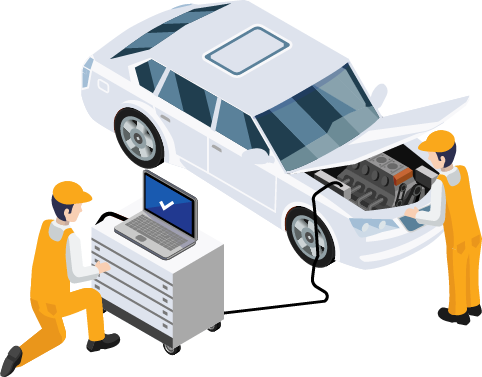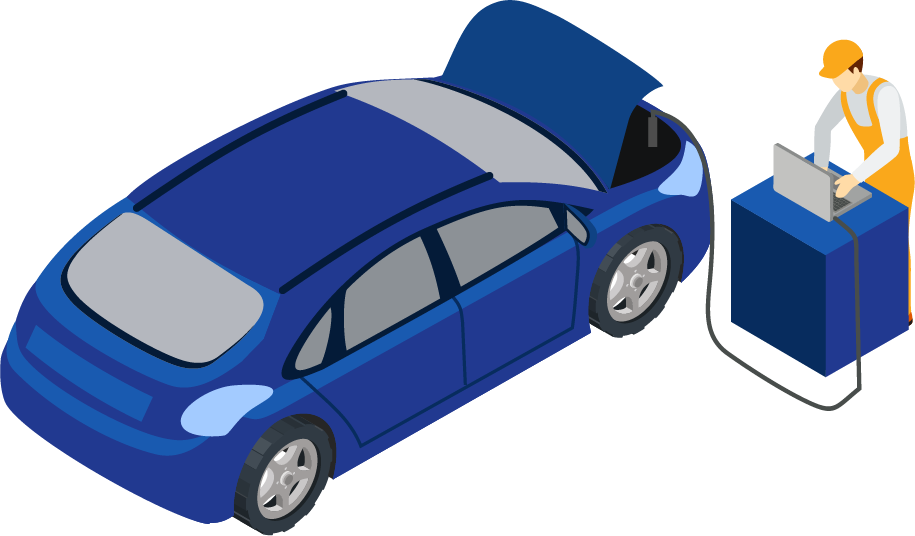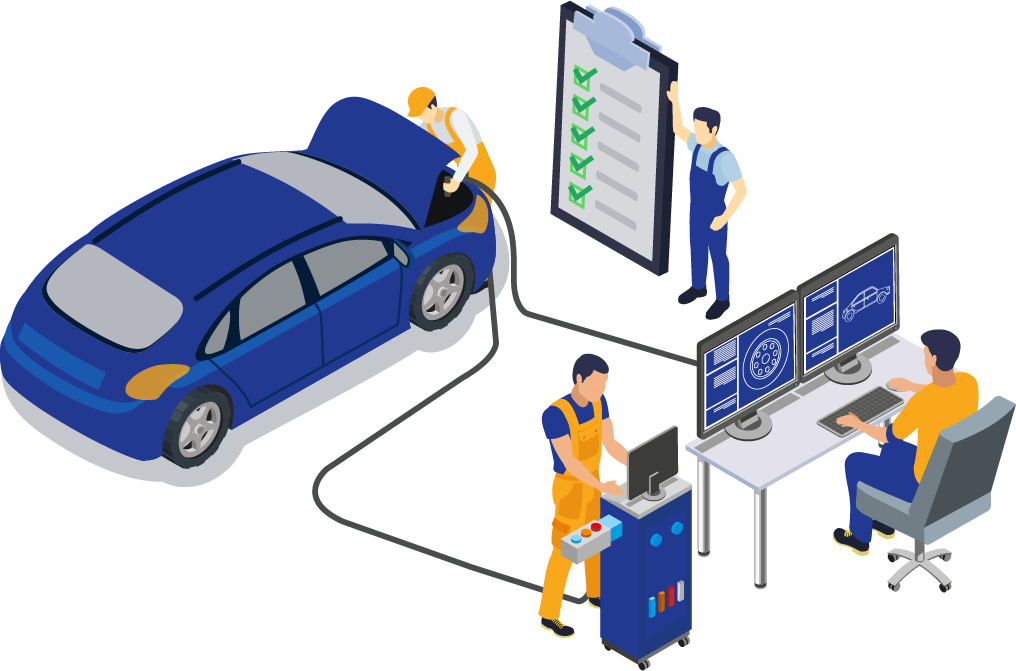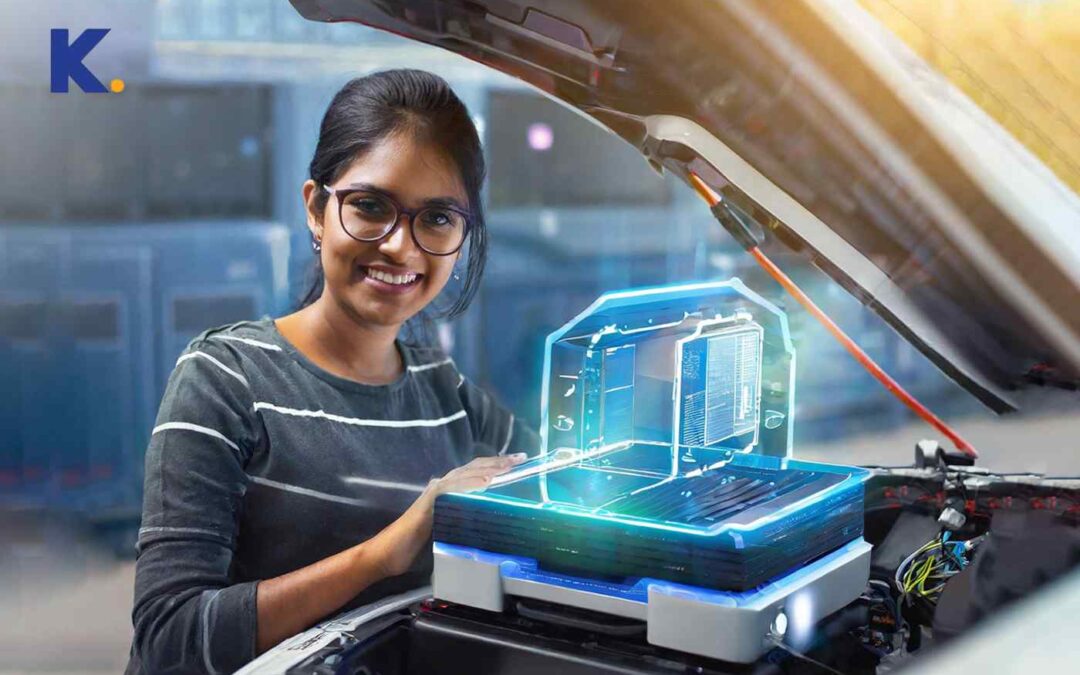

Solutions for Automotive Verification and Validation

Our Automotive Verification and Validation services encompass everything from vehicle integration to certification testing, offering a thorough validation lifecycle that confirms system integrity and compliance with industry standards.
Whether through rigorous in-vehicle testing or advanced simulation techniques like HIL/SIL/MIL, our goal is to deliver certification-ready solutions that exceed the expectations of both manufacturers and end-users.
Our Automotive Verification & Validation Services

Vehicle Integration Testing
Our Vehicle Integration Testing services ensures that individual system components function harmoniously within the vehicle’s ecosystem. By simulating real-world scenarios, we validate the performance, reliability, and interoperability of integrated systems.
System & Integration Testing
We go beyond component-level analysis to assess how systems interact. Our System & Integration Testing detects potential conflicts and optimises the communication between various vehicle systems, ensuring cohesive operation.
In-Vehicle Testing
Our Vehicle Testing services bring verification into the real world, assessing system performance in the actual driving environment. This includes extensive road testing under various conditions to ensure reliability and safety.
Functional Testing
We scrutinise each function of the vehicle’s systems to verify that they meet all requirements. Our Functional Testing procedures are meticulous, ensuring every feature operates correctly across various scenarios.
HIL/SIL/MIL
We employ Hardware-in-the-Loop (HIL), Software-in-the-Loop (SIL), and Model-in-the-Loop (MIL) testing to validate complex systems. These simulation techniques allow for efficient, early-stage testing that reduces the need for costly physical prototypes.
Test Automation
Our Test Automation services accelerates the testing process while increasing its accuracy. By automating repetitive and detailed test cases, we enhance efficiency and consistency in the validation process.
Certification Testing
We navigate the certification landscape with expertise, conducting thorough testing to ensure compliance with all relevant standards and regulations, paving the way for market entry.
FuSA Testing
Functional Safety (FuSA) Testing is crucial in the automotive sector. We rigorously test systems to meet the stringent requirements of operational safety standards, focusing on risk assessment and mitigation.
Labcar Testing
Our Labcar Testing services utilise advanced laboratory setups to simulate vehicle behaviours. This controlled environment allows for the precise testing of vehicle dynamics, electronic systems, and overall performance.
Accelerate Market Readiness, Elevate Safety and Compliance Through Our Specialised Verification Process.
Frequently Asked Questions
What does Certification Testing involve, and why is it important for vehicles?
Certification Testing involves a series of evaluations to ensure that a vehicle meets specific regulatory, safety, and performance standards. It is crucial for legal compliance, market-entry, and customer assurance of quality and safety.
What are the benefits of using Labcar Testing for automotive development?
Labcar Testing allows for efficient simulation and testing of vehicle components in a controlled environment, reducing development time and costs. It offers early detection of issues, flexibility in testing scenarios, and enhances the overall quality of the final product.
How do you customise testing services to meet specific automotive industry standards and regulations?
Customisation involves understanding client needs and regulatory requirements and tailoring testing protocols and methodologies to meet these standards. This may include adapting to different vehicle types, technologies, and market-specific regulations, ensuring comprehensive and compliant testing.
How does your organisation stay updated with the evolving automotive technology and testing methods?
Our organisation stays updated by continuously investing in research and development, participating in industry consortia, attending and contributing to technical conferences, and collaborating with technology partners and academic institutions to incorporate our services’ latest innovations and standards.
How do you measure and report the success and effectiveness of your testing services?
Success and effectiveness are measured through key performance indicators like test coverage, defect detection rates, client satisfaction, and adherence to timelines and budgets. Results and insights are reported through detailed documentation, analysis, and review meetings with stakeholders.
What support and training do you offer for teams engaging in automotive testing and validation services?
We offer comprehensive support, including training programs on the latest testing tools and methodologies, ongoing technical assistance, and access to a knowledge base of best practices. Customised training can be provided on-site or virtually to ensure teams are well-equipped to handle testing challenges.
What kind of support you can provide for HIL Building Setup?
We provide guidance on system design, software integration, hardware selection, and troubleshooting for Hardware-in-the-Loop (HiL) simulation setups. Our team also offers customized solutions to meet your specific project needs.
Contact Us

Our Blogs
Taming the Terrain: Overcoming Software Integration Challenges in Electric Vehicles
The electric vehicle (EV) revolution is in full swing, but Tier 1 suppliers face a unique set of hurdles on the road to a sustainable future. While their expertise in traditional automotive engineering is invaluable, navigating the complexities of EV software integration presents a new challenge...
Attracting Top Talent and Cultivating Innovation: The Keys to Success in Automotive Software Development
The skillsets required to design, develop, and integrate software into complex vehicles have expanded dramatically. Today’s automotive OEMs need a new breed of engineers with expertise in: The automotive industry is undergoing a seismic shift. Software is no longer...


